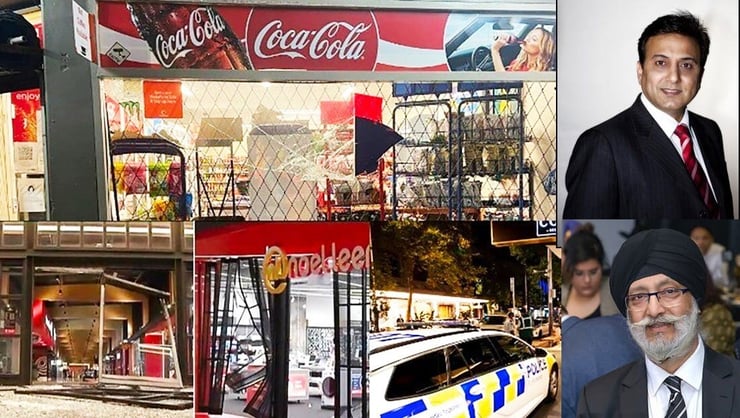Christchurch small business owners meet to discuss concerns

Dairy stores and other small company owners from Christchurch met on Friday, 5 August, to address a range of difficulties and worries that the business community is facing. Former Member of Parliament Kanwaljit Singh Bakshi and the Dairy and Business Owners group President, Sunny Kaushal, travelled from Auckland to address the meeting.
According to New Zealand government statistics, there are approximately 530,000 small businesses in NZ that constitute 97 percent of all firms. These businesses account for 28 percent of employment and contribute over a quarter of NZ’s GDP. Despite this size, many of these businesses are feeling that their concerns are not being addressed.
It is a widely known fact that over the last two to three years, the small business sector in NZ is struggling and trying to cope with the onslaught of multiple challenges. These challenges include shortage of staff due to border closure, lack of demand due to lockdowns, continued ram raids and rising criminal incidents among others.
Saji Thomas and Christchurch’s community leader Natu Rama organized the meeting. Rama told Indian Weekender, “I have been observing the pain that the small businesses and dairy owners, in particular, are going through and on Sunny Kaushal’s request, I called for the meeting. The idea was to get together, acknowledge the common issues and challenges, and discuss what can be done collectively to allay the fears and tackle the challenges they are facing individually.”
Topics discussed during the meeting included the government's recent announcement about outlawing smoking and eventually ending tobacco sales. The government intends to implement Smokefree Generation, which will make purchasing tobacco products illegal for anybody born on or after January 1, 2009. The proposal calls for a sharp 95% reduction in the number of stores that are permitted to sell tobacco goods and mandating the sale of low nicotine products. Dairy owners fear that prohibiting smoking will have a negative impact on their livelihood and cause them to lose more than 50% of their turnover.
For business owners, it is like being between a rock and a hard place. There is a major dilemma when it comes to selling cigarettes in stores, since they attract robberies and ram-raids, but they also contribute significantly to their revenue. It is possible that many of them will have to shut down as a result of losing this chunk.
Many of those present also opined that smoking ban will actually lead to a black market an already-growing black market for cigarettes.
It is still a few years away before smoking ban repercussions begin to be felt, however the meeting centered around the immediate issue of rising crime. In the recent years, the nightmare of ram-raids and break-ins has been experienced by many dairy businesses in Christchurch just like other NZ cities. The issue of police inaction was also raised and discussed.
Kaushal shared, “The Government needs to listen to what retailers are telling them. The soft on crime approach is not working. Currently, 97% of offenders are getting away with their crimes. Offenders must be arrested, tried and sentenced.”
Talking about the police, Kaushal said, “We need police to be more visible in the community. They must work closely with businesses, building relationships and gathering information on offenders.
“Perhaps we take a cue from the UK and re-task parking wardens into Police Community Support Officers with anti-social crime prevention rather than ticketing the shoppers, delivery drivers and contractors we need. In Auckland alone, that would provide an extra resource of around 160 people to support the Police.
“For our vulnerable businesses, Fog Cannons and Bollards are a good deterrent. The dairy shop sector bleeds for the $1.8 billion they collect for the government off cigarettes and GST, so around $25 million would help to provide two-thirds of dairies with bollards and fog cannon.”
Sangeet Mehta, who endured the horrific experience of having his dairy ram-raided three times, revealed the gruesome ordeal that his young family had to go through.
Everybody agreed that there is a need for all business owners to come together and form a band to ensure that their voice reaches the authorities and policy makers.





